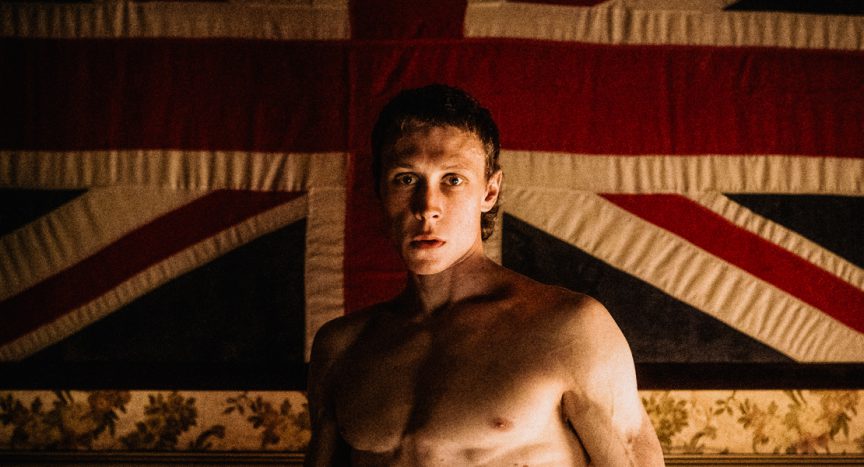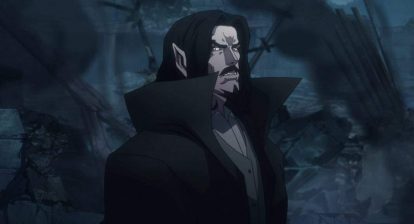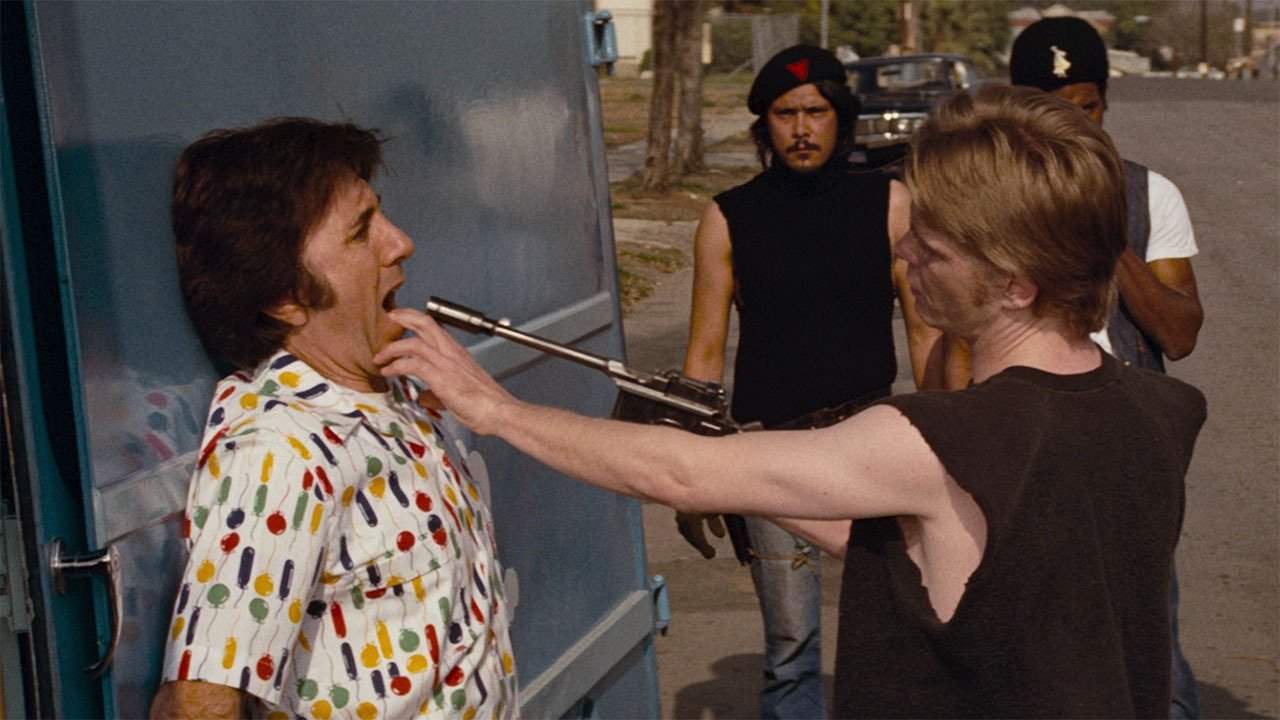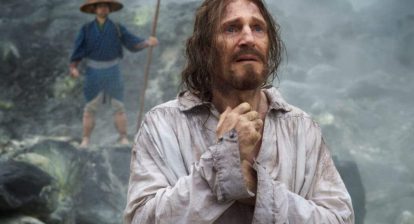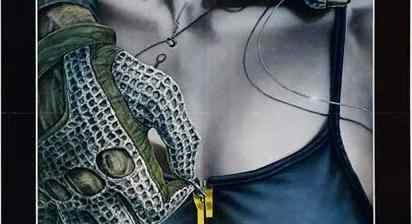Not Quite Horror is back from the dead for 2020. After resting for a bit in its kind-of creepy but still-normal-enough-to-pass-as-regular crypt, our biweekly series returns. In each installment, Joey Keogh will argue why a chosen film not generally classified as horror actually exhibits many of the qualities of a great flight flick, and therefore deserves the attention of fans as an example of Not Quite Horror. This week, Justin Kurzel returns once again with True History of the Kelly Gang.
When the trailer for True History of the Kelly Gang dropped, even without knowing what the movie was or what kind of gloriously punk rock hellscape it crawled out of, it was clear that this was a Justin Kurzel production. The Aussie filmmaker, who’s no stranger to these parts having contributed two stone cold Not Quite Horror classics over the course of his relatively short career in the form of barnstormingly bleak debut Snowtown and Shakespearean horror story Macbeth, is fast becoming the scariest non-horror director around. With this, his comeback following the disappointment of video-game adaptation Assassin’s Creed, Kurzel marks himself out as someone whose darkest depths have yet to be plumbed.
Related: Not Quite Horror: Snowtown (2011)
Taking on the myth of Ned Kelly, who’s previously been played onscreen by our dearly departed Heath Ledger as well as, er, Mick Jagger, is a daunting task but Kurzel has an ace card with lead actor George MacKay. The Brit, casually described as Gorgeous George by those who have, you know, seen him has been quietly but intently making his mark on the film industry, mostly at home but abroad too in the likes of Captain Fantastic, where he played the shy, brooding son of lead Viggo Mortensen, for the past few years. His most recent role, prior to this one, was in the ludicrously overrated war movie 1917.
While that film rendered MacKay basically mute before offering him a challenging scene (spoiled by the trailer) during which he runs across the battlefield to deliver news nobody cares about anymore because we’ve spent so long watching him on this journey that his safety is all but guaranteed, Kurzel taps into the rage hidden just below his angular yet still boyish features. Although MacKay’s Ned doesn’t show up for a good 30 minutes (the younger version is played, very well I might add, by Orlando Schwerdt) when he finally appears, it’s a helluva introduction – the kind you feel in your bones as instantly iconic.

Twisting his lean torso, muscular but also weirdly skinny still, into all manner of strange poses against the backdrop of a massive Australian flag, his harshly-cut mullet hanging limply on his neck, and a stylishly punk rock tune complementing his unearthly movements, MacKay makes it immediately clear who this Ned is. Raised on hatred and fear by a mother who oscillates between being borderline sexually obsessed with him to making Ned feel utterly worthless by selling him off to a traveling criminal (delightfully played by a bushy-bearded Russell Crowe) and a father whose inner machinations he could never truly understand, this Ned is careless to the point of recklessness.
His introduction takes place at a bare knuckle boxing match in a well to do palatial home, the jarring move indoors to the rich folk chafing against the harsh and unyielding landscape in which Ned was reared (if you could even call it that). Shirtless and baring his teeth, MacKay looks hungry, whether for violence, food, or perhaps just love and attention, isn’t clear but whatever it is, he’s going to fight tooth and nail for it. Although this is another almost non-verbal role for the British actor (save his plaintive narration, which crucially never feels intrusive in spite of its prevalence throughout the film), everything he’s thinking is written across that sweet, open face of his. As clichéd as the “windows to the soul” description is, MacKay really does possess that quality.
True History of the Kelly Gang makes good use of the actor’s inherent softness too, particularly as he turns leader of a makeshift army of other disillusioned young lads. After learning his father’s penchant for wearing dresses into battle was actually a method of intimidation, of throwing the enemy off their game by freaking them out, Ned adopts the practice himself and, in one of the movie’s most quietly devastating scenes, he and his troops storm the local brothel where the woman he’s fallen for (played by Leave No Trace breakout Thomasin McKenzie) is living alongside her young son (one of the movie’s scariest moment comes when a horrible Brit (is there any other kind?) played with devilish charm by Nicholas Hoult holds a gun to her baby’s head).
Kurzel operates in worlds where the rule of law no longer applies, whether it’s the murderous treachery of Macbeth or the small-town torture of Snowtown. True History of the Kelly Gang follows suit but, because it’s a period piece like Macbeth, Kurzel is freed from the constraints of modern day storytelling and can communicate much of his characters’ darkest elements via the harshness of their surrounding landscape. The bleakness of the parched land in which Ned and his family live, essentially in a rundown shack, leaves them both isolated and horrifyingly exposed to local tyrants such as Charlie Hunnam’s sergeant who, when the film opens, is sexually assaulting Ned’s mother with gleeful relish (he later falls victim to Crowe’s character, in a grueling sequence involving testicular torture and much weeping).

As Ned’s mother, The Babadook’s Essie Davis (also Kurzel’s real-life wife) sheds the maternal instincts she showed in that film to become the kind of selfish, abusive horror show we all worry about becoming if we ever have kids of our own. She wants Ned all to herself but also flaunts her dalliances with other men in front of him, as though he were a spurned lover. Then, after quite literally selling her son off to the highest bidder, she guilt trips him for ditching the family when he returns to the fold as an adult. It’s clear Ned is never going to win with his mother but she sees nothing wrong with her behavior and, given that this isn’t a time when women were being seen as equals, nobody steps in to set her straight either way because her existence doesn’t register with the men around her unless they want something from her.
There’s a hopelessness to True History of the Kelly Gang that’s solidified in Kurzel’s bare-bones approach to the dialogue, the stunningly bleak cinematography by Ari Wegner, who also shot the similarly dark period piece Lady Macbeth, the score by the director’s brother, and regular collaborator, Jed Kurzel, and the vanity-free performances, particularly from Davis, Crowe, and Hoult, all of whom look like they have real dirt under their fingernails. Even when the action move indoors, a stench radiates off the screen, the kind that penetrates the skin and makes everything feel that much heavier. In keeping with its cheeky title, Kurzel offers no relief from the tension as the movie rattles towards its violent, heartlessly inevitable conclusion.
See Also: Not Quite Horror: Macbeth (2015)
At the center of it all is that peerless performance from MacKay. Kurzel has sourced agonizing leading men before, most recently finding a kindred spirit in Michael Fassbender, who’s never met an emotionally fraught moment he couldn’t stare to death, but MacKay is so perfectly matched to the director’s style you almost wish they would do every movie together from now on (except that it would limit the scope of what both of these massive talents could achieve in future). This is the ultimate Ned Kelly performance no matter how you slice it, but it’s also yet another example of how MacKay can do virtually anything if given the opportunity. Straight horror surely must be next, as, on this evidence in particular, those gorgeous features are screaming to be put to more horrifying use.
True History of the Kelly Gang should be available to stream in the US from April 24, 2020 so watch out for it
